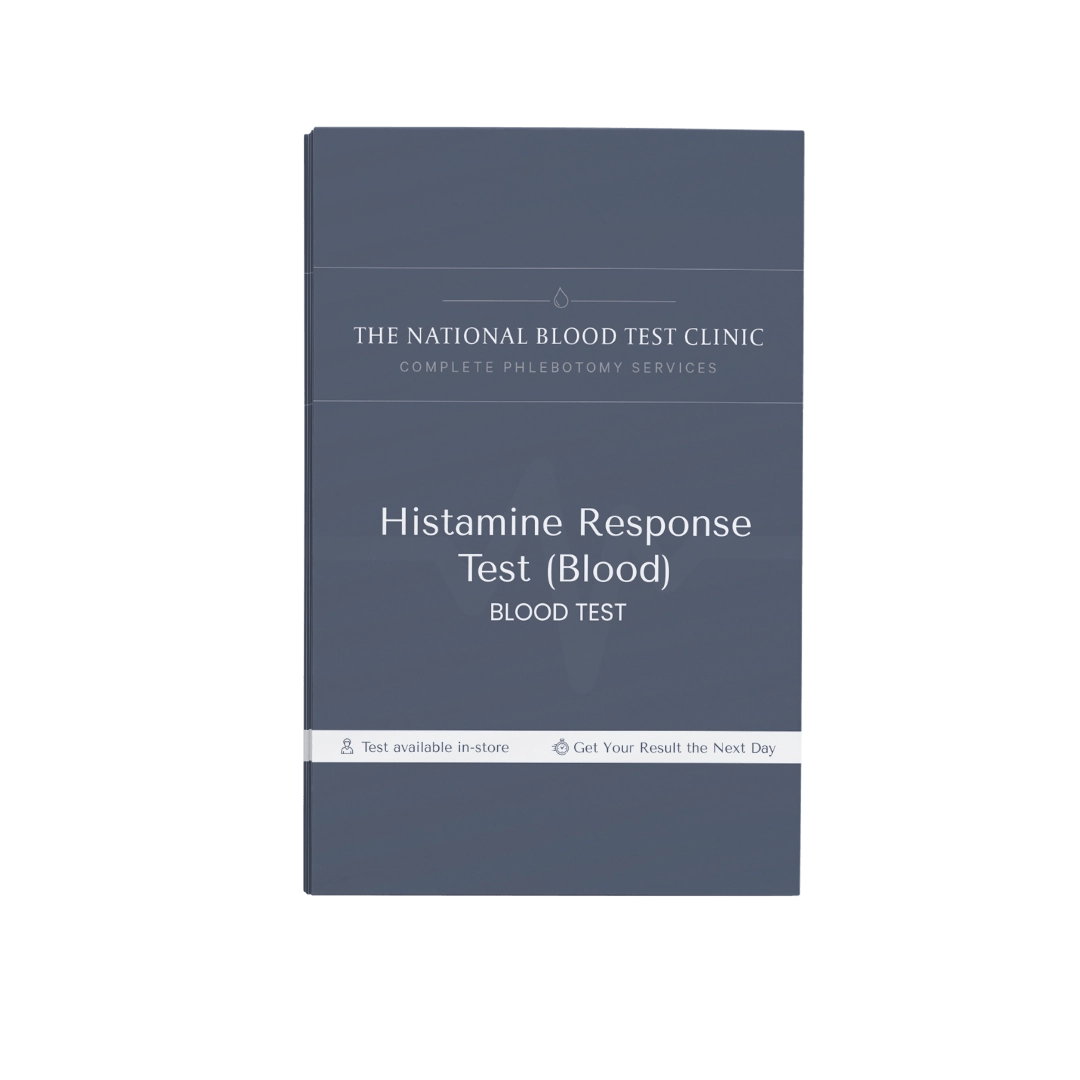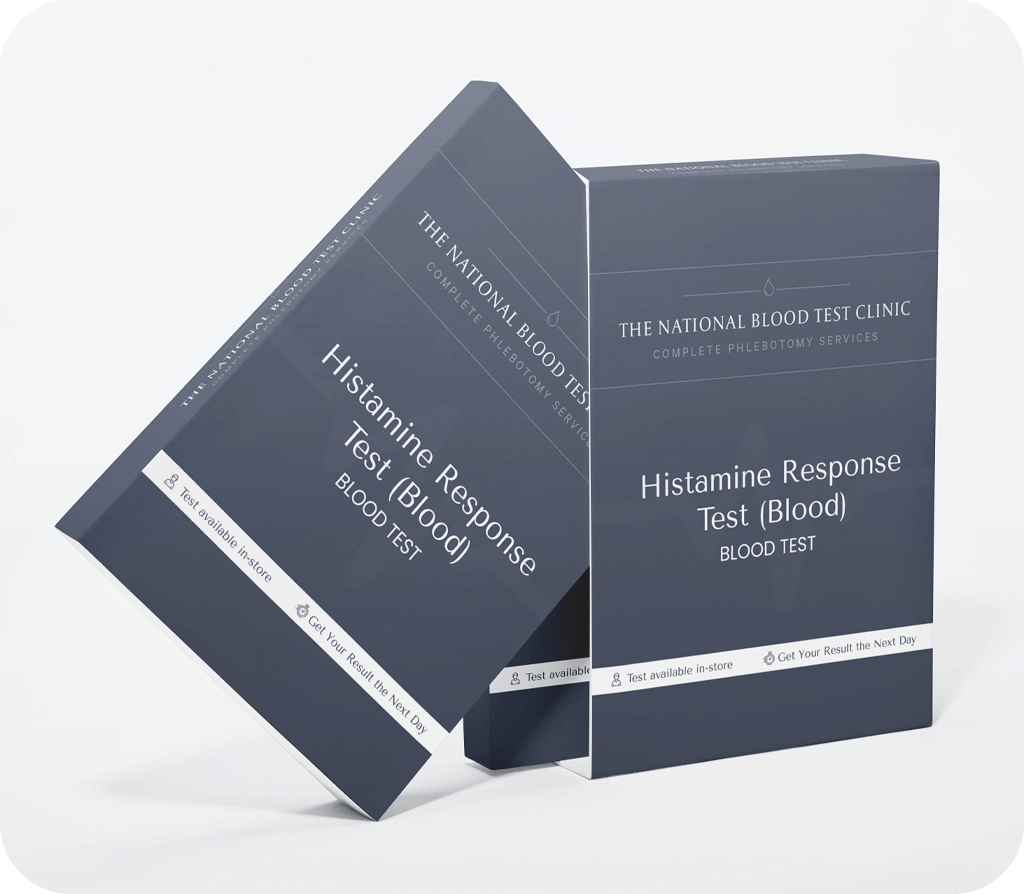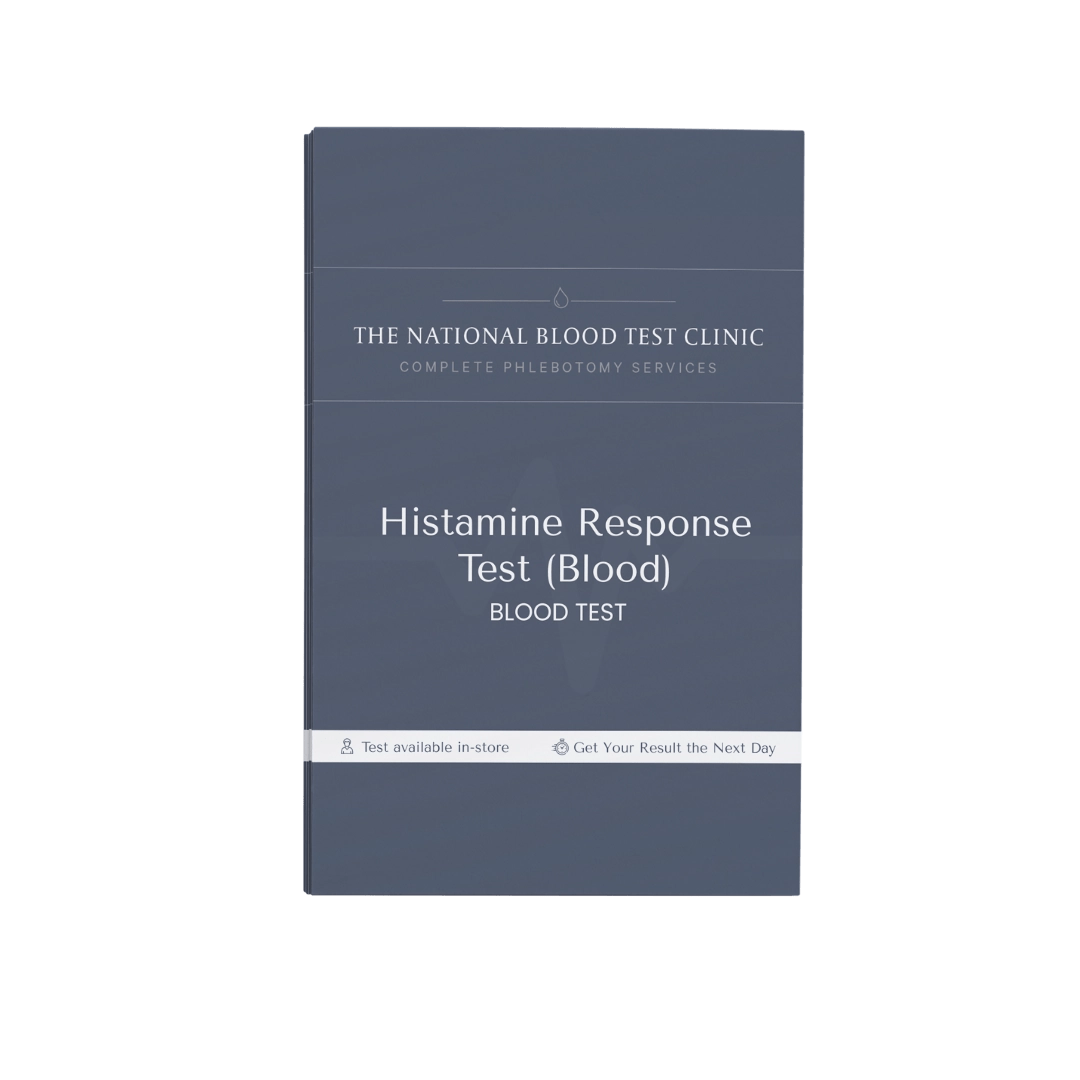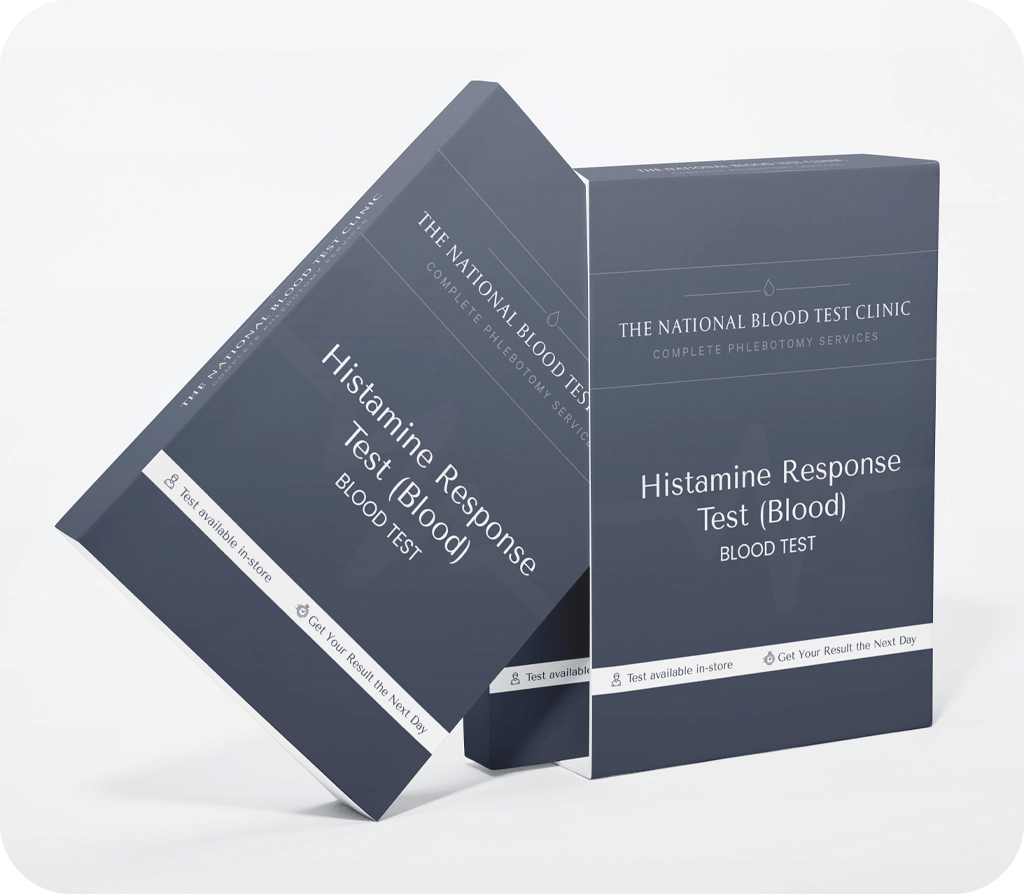My Store
Histamine Response Test (Blood)
Histamine Response Test (Blood)
SKU:HISB
Persistent headaches, flushing, itching, or digestive upset may point towards abnormal histamine levels. The Histamine Response Test measures the concentration of histamine circulating in the bloodstream, helping to identify allergic responses, mast cell disorders, or histamine intolerance.
Why the Histamine Response Test (Blood) Matters?
Histamine plays a vital role in immunity, gut function, and allergic reactions. Excessive or deficient levels can cause wide-ranging symptoms from skin irritation to gastrointestinal issues. Monitoring histamine in blood provides insight into allergic activity and potential mast cell disorders, supporting tailored treatment plans.
What Gets Assessed?
- Circulating blood histamine levels
Turnaround Time
- 18 Days
100 in stock
Visit a partner clinic (+£50)
Once you've ordered your test, look out for an email from our phlebotomy partners containing information and a link to book your appointment. We'll send you everything the clinic will need to complete the sample and post it back to our labs.
Organise a nurse yourself
If none of the above options work for you, you can arrange your own medical professional to collect your sample. There is no additional charge for this. Once you've ordered your test, we'll send you everything you and your chosen medical professional will need to collect a sample and post it back to our labs.
Couldn't load pickup availability
Enter Your Details


Visit a partner clinic (+£50)
Once you've ordered your test, look out for an email from our phlebotomy partners containing information and a link to book your appointment. We'll send you everything the clinic will need to complete the sample and post it back to our labs.
Organise a Nurse Yourself
If none of the above options work for you, you can arrange your own medical professional to collect your sample. There is no additional charge for this. Once you've ordered your test, we'll send you everything you and your chosen medical professional will need to collect a sample and post it back to our labs.
How Our Test Works
-

Place Your Order
Place your order online and receive a test kit delivered to your home. You’ll need to bring this kit with you to your scheduled appointment at one of our partner blood collection clinics.
-

Attend Your Appointment
At your chosen clinic, a trained nurse or phlebotomist will collect your blood sample using the kit you bring. If a sample collection courier is not available at the site, you’ll be asked to take the sealed sample with you and post it using the prepaid packaging provided.
-

Receive Your Results
Once your results are ready, you’ll receive an email notification to log in and view them securely via your private portal. Please note: venous blood test results are not automatically reviewed by a doctor. We recommend booking a consultation with a qualified clinician to help you interpret and understand your results fully.
FAQs
What does the Histamine Blood Test measure?
The Histamine Blood Test measures the concentration of histamine in your blood, providing insight into immune system activity, allergic reactions, and histamine intolerance.
Who should consider a Histamine Blood Test?
This allergy and histamine intolerance test is recommended for individuals with unexplained allergic reactions, migraines, skin flushing, digestive issues, or suspected mast cell activation.
How is the histamine test performed?
A venous blood sample is collected and analysed in a laboratory to assess histamine levels accurately.
What do high histamine levels indicate?
Elevated histamine levels may point to allergic reactions, mast cell activation syndrome (MCAS), or histamine intolerance.
Can diet influence histamine levels?
Yes. Consuming high-histamine foods such as aged cheese, red wine, smoked meats, and fermented products can temporarily raise histamine levels in the body.
Subscribe to our emails
Be the first to know about new collections and exclusive offers.





